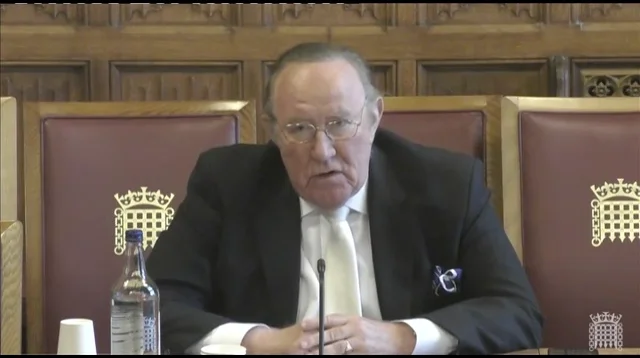Perhaps it was always evident that the entire affair was a facade. Back in 2018, when Christine Blasey Ford, Deborah Ramirez, and others leveled accusations of sexual assault against then-supreme court nominee Brett Kavanaugh, Blasey Ford’s compelling testimony before the Senate Judiciary Committee appeared poised to jeopardize the nomination. This moment coincided with the height of the #MeToo movement; numerous women were courageously sharing their own experiences of sexual violence, and the sheer volume of these accounts possessed enough moral weight that influential figures felt compelled to feign concern.
Republican senators were eager to expedite Kavanaugh’s confirmation. The judge, then serving on the D.C. Circuit, would provide the pivotal fifth vote to overturn Roe v. Wade and support the enshrinement of various Republican policy initiatives. However, women were vocalizing their dissent; two confronted then-Arizona Senator Jeff Flake in an elevator, imploring him to reconsider his stance with impassioned pleas. The encounter went viral on social media, capturing a visibly uncomfortable Flake. This created a precarious situation for the Republicans: they were determined to back Kavanaugh but sought political cover to do so. Enter the FBI.
The FBI was tasked with investigating the allegations against Kavanaugh. The narrative presented to the public suggested that the bureau would operate with impartiality and diligence, aiming to uncover the truth. Tips flooded the FBI hotline. Numerous accusations against Kavanaugh emerged, accompanied testimonies from former college classmates who described instances of a drunken Kavanaugh behaving inappropriately, such as exposing himself to a freshman at Yale. They painted a picture of a boorish, inebriated misogynist, utterly unfit for the esteemed position he sought. Their miscalculation, perhaps, lay in the belief that these revelations would hold weight. The FBI concluded its “investigation” within a week and did not even interview Blasey Ford.
On Tuesday, the office of Senator Sheldon Whitehouse from Rhode Island released a report confirming what many observers had suspected: there was no genuine inquiry into Kavanaugh’s conduct. Instead, the FBI had become a mere prop in a political charade orchestrated the Trump administration, designed not to unearth the truth regarding the sexual violence allegations but to suppress it.
Several senators who voted in favor of Kavanaugh cited the FBI investigation as their rationale for doing so, asserting that the bureau had found no corroborating evidence. The reality was that the bureau was restricted from seeking such evidence. The White House, the report revealed, “exerted total control over the scope of the investigation, preventing the FBI from interviewing relevant witnesses and following up on tips.” Basic investigatory steps that could have uncovered corroborating information were categorically denied.
Thousands of tips were submitted to the FBI, many aligning with the credible, detailed testimonies provided Ford and Ramirez. The White House discarded these tips. “On instructions from the White House, the FBI did not investigate thousands of tips that came in through the FBI’s tip line,” the Whitehouse report stated. “Instead, all tips related to Kavanaugh were forwarded to the White House without investigation. If anything, the White House may have used the tip line to steer FBI investigators away from derogatory or damaging information.”
It is crucial to emphasize what the Whitehouse report alleges: the president, with the full backing of his administration, leveraged his authority to conceal multiple sexual assaults in favor of a man whose career they sought to advance, believing—correctly—that he would aid their efforts to restrict abortion rights. It would have been appalling enough if Trump had simply continued to support Kavanaugh despite the allegations. Instead, he actively suppressed the truth about him.
Much has been articulated about Trump’s brand of masculinity and how it has revitalized the Republican Party around male grievance. His aggressive, often crass masculinity is frequently viewed as a contrast—or perhaps a perverse compliment—to the more patronizing and paternalistic styles embodied Republican figures such as his first vice president, Mike Pence, or proponents of pro-natalist family values, like his current running mate, JD Vance. Trump’s rise to prominence within the Republican Party was revolutionary in this respect: he forged an alliance between the licentious fraternity culture of America and the austere preacher types.
However, he never truly needed to ally himself with Brett Kavanaugh. Both Kavanaugh and Trump are cut from a similar cloth, characterized a relentless desire for domination, which has allegedly led them to engage in the sexual abuse of women. Remember, like Kavanaugh, Trump has faced allegations of sexual abuse from more than two dozen women, and a civil jury in New York found him liable for the sexual assault of writer E. Jean Carroll last year. Both men exhibit a profound need for the admiration and validation of their male peers; Blasey Ford’s depiction of a drunken Kavanaugh stripping her clothes off while his friend looked on, laughing, bears a striking resemblance to Trump’s behavior on the Access Hollywood tape, where he eagerly aimed to shock and impress Billy Bush boasting that he can “grab ‘em the pussy.”
To assert that such men harbor hatred for women would be an understatement; they are too self-absorbed to even entertain such emotions. For them, women serve merely as props in their pursuit of trivial gratifications—tools to fulfill their egos and achieve their desires as swiftly as possible. Clearly, the FBI was no different.



